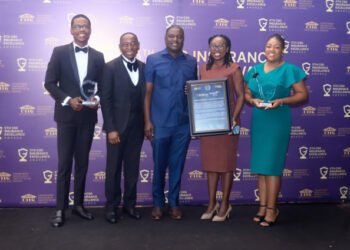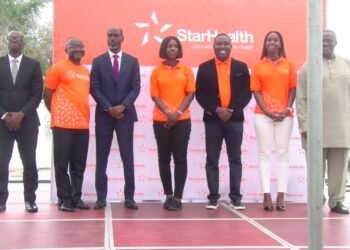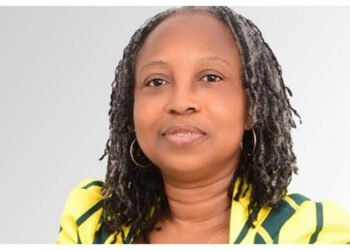Some key partners involved in providing various forms of support to childhood cancer treatment in the country have appealed to the Ministry of Health to specify the areas the National Health Insurance Scheme would absorb.
This, according to the partners, will ensure transparency and enable them to know which areas they should solicit for help from donor agencies.
The partners indicated that leaving it blank as it is presently will create problems, especially because donors would think the government is absorbing everything under the treatment of the condition for which reason when they go to them to ask for funding, they would be unwilling to do so.
The partners include: the World Child Cancer and the ROCHE Products Ghana Limited. They expressed this concern at the launch of this year’s International Childhood Cancer (ICCD).
The celebration of the day, which was on the theme: “Better Survival is achievable through your hands”, was spearheaded by the World Child Cancer.
Absorption of Childhood Cancers in NHIS
In November last year, President Nana Addo Dankwa Akufo-Addo, directed that the treatment of four childhood cancers to be included in the benefit package of the National Health Insurance Scheme (NHIS) with immediate effect.
The First Lady, Mrs Rebecca Akufo-Addo, revealed this at the launch of last year’s National Health Insurance Week in Accra. She stated that the four childhood cancers include: Burkitt Lymphoma, Acute Lymphoblastic Leukaemia, Wilms tumour (which starts in the kidney) and Retinoblastoma (which occurs in the eye). These four cancers are reported to constitute 60 per cent of all childhood cancer cases in the country.

While commending the government for that decision, the World Child Cancer Regional Coordinator for sub Saharan Africa, Mr Emmanuel Ayire Adongo, noted that if the ministry did nothing about specifying which packages the NHIS would cover, the absorption of the condition onto the scheme, although positive, might turn up to be negative.
“We have six index cancers and out of these, government is absorbing four, but which components of the four are they absorbing? When you take the diagnostic component, what are they absorbing? For the treatment component, what are they absorbing? Are they absorbing radiotherapy or they are absorbing surgeries? The retinoblastoma, are they absorbing the prosthesis, the inosculation, radiation and all the treatment? The drugs, is it all the drugs because there are different treatment regimen. So, they need to compile the package so that we can use it to tell the donor community that these are the areas that are not being covered so that they can come in to help.”
Mr Emmanuel Ayire Adongo
Construction of Hostel Facility
Mr. Adongo moreover, extolled the First Lady for her support for the construction of a hostel facility for parents of children with cancers at the Korle Bu Teaching Hospital and described the gesture as pragmatic and essential.
However, the Regional Coordinator pointed out that since Korle Bu is not the only childhood cancer treatment centre in the country, “and all the other centres too do not have hostels, so there is a lot more to be done.”
A representative of Ghana Parents of Children with Cancer (GHAPACC), Dr John Ahenkorah, urged parents of children with cancer not to abandon the treatment of their children with the excuse that they had no place to sleep because they now have a hostel facility for them at Korle Bu.
Mr Prince Aryee, a representative from the Roche Products Ghana Limited, also asked all partners involved in providing support to childhood cancer treatment to think of other avenues of funding to help the government as it absorbs the treatment into the NHIA adding that this way, more children with cancer could benefit.
In her keynote address, the Deputy Minister of Health, Ms Tina Mensah, expressed her appreciation to the government and to all health staff, who throughout the years have contributed greatly to the care of children with cancer.
“We are committed in ensuring that more oncologists, oncology nurses and other health personnel needed to care for persons diagnosed of cancer in the country are trained accordingly.”
Ms Tina Mensah
Ms Mensah therefore, called on all to come together to make childhood cancer a national children’s priority to ensure that every child with cancer receives early and proper diagnosis, has access to life-saving essential medicines, receives appropriate and quality medical treatment and sustainable and livelihood opportunities for survival.
READ ALSO: YouStart Initiative: Keep Partisan And Political Interference At Bay, IFS Urges Gov’t























